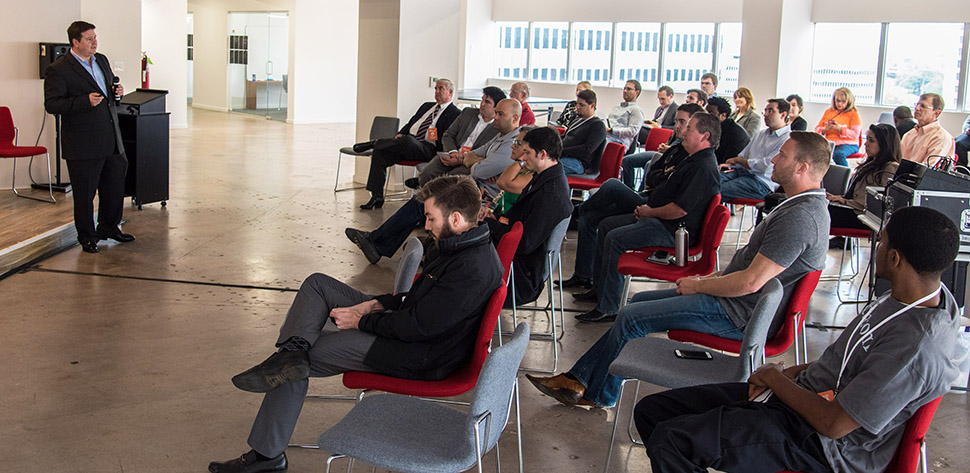STARTUPS NEED TO PROTECT THEMSELVES FROM HACKERS
Startups who think they’re too small to be hacked couldn’t be more wrong. In fact, the vast majority of startups could be hacked within a half hour with disastrous results.
When corporations such as Target and Home Depot get attacked, it makes front page news. That’s not true with startups, but it still happens all the time, Brian Kilpatrick, a business attorney and cybersecurity expert.
Kilpatrick discussed cybersecurity from a startups point of view at the Dallas Startup Week seminar Thursday afternoon.
“It’s a misconception. Small business businesses are hacked more often than the big guys.”
– Brian Kilpatrick
“I’m a little guy. I don’t have anything to give. Why would anybody want to hack me, what are they going to get?” Kilpatrick asked. “It’s a misconception. Small business businesses are hacked more often than the big guys.”
He said what hackers get is often proprietary information such as a business model or an invention before it’s patented.
“If I can get your source code, I have your company,” Kilpatrick said. “I own you now and you have no intellectual property. It’s ridiculous how easy it is to get that information.”

Brian Kilpatrick talks at the cybersecurity session. (Photos by Michael Samples)
He said there’s also credit card numbers, social security numbers, driver’s licenses, and email addresses of employees and customers.
Some hackers will put a cryptolocker on your computer, encrypting your information and threatening you with a ransom note to get it back.
“Cryptolockers are going crazy,” Kilpatrick said.
He said the solution for that is to always have a backup somewhere else so you don’t have to worry about the ransomware.
Then, after the hack, things could get even worse.
“You are a victim and a villain,” Kilpatrick said. “All of your friends are going to disappear. You’re going to get demolished by the FTC [Federal Trade Commission]. It’s going to make the hacker look like your best friend.”
He said these hacks could come from anywhere and there’s often no extradition if it came from outside the country. Even security insurance won’t cover intellectual property or trade secrets.
“I don’t want my new idea getting out before I want it to get it out.”
– Brian Kilpatrick
“If it’s gone, it’s gone,” Kilpatrick said. “I don’t want my new idea getting out before I want it to get it out.”
The best thing you can do is encrypt your data, especially if you’re using a public WiFi connection, he said.
Kilpatrick actually stores his files at a remote server in Switzerland that’s encrypted while it’s being transmitted and while it’s sitting on the server.
That’s especially relevant now that the FBI has hired professional hackers to break into a locked iPhone that belonged to one of the shooters in the San Bernardino, Calif. attacks.
The U.S. government would have a much harder time reaching the data stored at Tresorit, an encrypted cloud storage in Switzerland, Kilpatrick said.
Don’t miss our special #DSW16 coverage: Subscribe to the Dallas Innovates e-newsletter.

































































